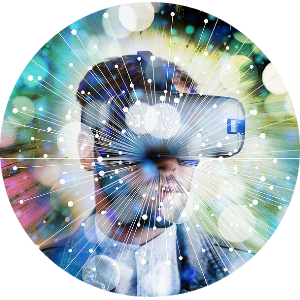Google Maps For Your Entire Life

Google Street View emerged from a seemingly insane vision: Put cameras on cars, and drive them around the entire world to capture every street on the planet. Over time, that data became more and more valuable. The footage from those cars automatically updates Google Maps with new business signs and changes street names. Data from the car’s trip can be used to correct satellite imagery.
Now, Facebook has an even grander ambition. On Wednesday, the company announced a plan to map the entire world, beyond street view. The company is launching a set of glasses that contains cameras, microphones, and other sensors to build a constantly updating map of the world in an effort called Project Aria. That map will include the inside of buildings and homes and all the objects inside of them. It’s Google Street View, but for your entire life.
Facebook can already see almost every aspect of how the world uses the internet, through its ad tracking of users and nonusers on and off its site. Project Aria would add a physical dimension to Facebook’s omnipotent gaze. About a hundred Facebook employees and contractors will use the glasses to record as much as they can of their immediate surroundings, according to Facebook’s website.
This effort will give Facebook an enormous dataset to build future augmented reality and A.I. products. The data could be used for everything from building an AR application to telling you where you left your keys, to a more personalized virtual assistant, according to Facebook employees who presented the project.
If the project goes according to plan, the final result would be a live, 3D map of the world, constantly updated and refreshed by people walking around with AR headsets. Facebook says that maps of public places would be publicly viewable, while the maps of users’ homes and belongings would be private.
The company insists any faces and license plates captured by Aria glasses wearers will be anonymized. But that won’t protect the data from Facebook itself. Ostensibly, Facebook will possess a live map of your home, pictures of your loved ones, pictures of any sensitive documents or communications you might be looking at with the glasses on, passwords — literally your entire life. The employees and contractors who have agreed to wear the research glasses are already trusting the company with this data.
The project brings up an extraordinary amount of questions because it doesn’t just affect the people who might buy Facebook’s AR glasses one day. The product and research decisions made by Facebook right now can determine whether Facebook is actually creating a distributed surveillance panopticon. Who has access to see the data from this live 3D map, and what, precisely, constitutes private versus public data? And who makes that determination? Faces might be blurred, but people can be easily identified without their faces. What happens if law enforcement wants to subpoena a day’s worth of Facebook’s LiveMap? Might Facebook ever build a feature to try to, say, automatically detect domestic violence, and if so, what would it do if it detected it?
It’s just the beginning for Facebook’s augmented reality plans, but these are questions the company has to consider before putting anything in the hands of consumers. Facebook has been pushing away users’ concerns about their privacy for more than a decade. That’s led to major data breaches and legal challenges for its invasive ad tracking.
One thing is for certain: If the company handles this platform the same way it’s handled Facebook.com, we’re in for a lot of trouble.